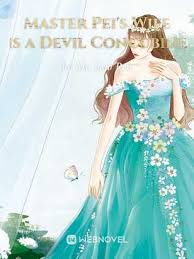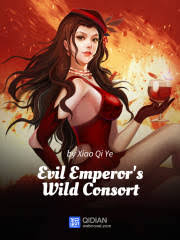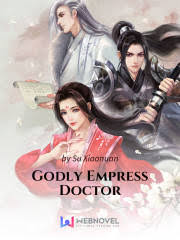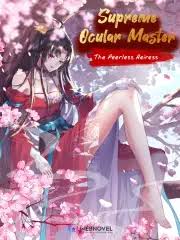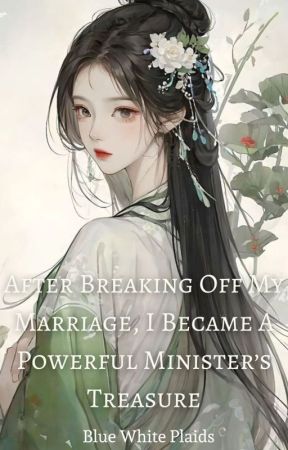The Story in 3 Sentences
A notorious historical figure known as the devil concubine Su Ji awakens in the modern era, reborn as the despised and talentless daughter of the Su family, instantly swapping ancient court intrigue for contemporary social warfare.
Her sharp mind and ruthless efficiency, once feared in imperial halls, now dismantle her enemies in high society and the entertainment industry, turning every slight into a strategic victory.
As she navigates complex family dynamics and a slow-burn romance with the powerful and enigmatic Pei Yuan, Su Ji redefines her legacy, proving that the label of “devil” often belongs to those who refuse to play by others’ rules.
Why It Stands Out
1. From Ancient Villainess to Modern Power Player
The novel flips the transmigration trope by not softening its protagonist. Su Ji doesn’t seek redemption for her past life’s cruelty; she weaponizes it. Her intelligence isn’t just clever—it’s surgical, dismantling rivals with a calm that’s more terrifying than any outburst. This unapologetic embrace of her “devil” identity in a world that expects female leads to be sweet or suffering makes her a refreshing anomaly in the josei romance space.
2. Romance Built on Mutual Recognition, Not Rescue
Unlike many novels where the male lead saves the damsel, the relationship between Su Ji and Pei Yuan thrives on mutual acknowledgment of each other’s strength. He doesn’t tame her; he admires her ferocity. Their chemistry isn’t born from vulnerability but from a shared understanding of power, strategy, and the loneliness that comes with being at the top. This dynamic elevates the romance beyond fluff into a partnership of equals.
3. A Satirical Mirror to Modern Celebrity Culture
The story uses Su Ji’s foray into the entertainment industry as a sharp critique of influencer culture, cancel culture, and the performative nature of modern fame. Her ancient perspective allows the narrative to highlight the absurdity of viral trends and manufactured scandals, turning her rise to stardom into a darkly comedic commentary on how little human nature has changed from palace backstabbing to online trolling.
Characters That Leave a Mark
There’s Su Qianrou – the quintessential jealous stepsister whose performative sweetness and constant scheming against Su Ji only serve to highlight her own insecurity and lack of real power in the family hierarchy.
You’ll meet Pei Xingxing, who despite his young age, observes the adult world with unnerving clarity; his quiet loyalty to Su Ji and his status as the overlooked Pei grandson add a layer of poignant innocence to the story’s often-cutthroat atmosphere.
And Jiang Nan? They’re the one who operates in the gray zone of the entertainment world, a savvy industry player whose ambiguous motives and shifting alliances keep both Su Ji and the reader guessing until the very end.
The Flaws Fans Debate
The pacing can feel repetitive, with Su Ji defeating similar types of antagonists using the same strategic playbook across dozens of chapters, leading to a sense of narrative stagnation in the middle volumes.
Some readers find the protagonist’s near-invincibility and lack of meaningful personal growth to be a drawback, as her “devil” persona rarely faces consequences that force genuine change or introspection.
The romance, while built on strong foundations, sometimes takes a backseat to episodic conflicts, making the emotional payoff between the leads feel delayed or underdeveloped relative to the novel’s massive chapter count.
Must-Experience Arcs
Ch. 1–50: The Rebirth Gambit – Su Ji wakes in the modern world, immediately confronts her family’s disdain, and uses her first public appearance at Old Master Pei’s birthday to announce her return as a force to be reckoned with.
Ch. 400–500: The Entertainment Arena – Thrown into the chaotic world of celebrity and media, Su Ji navigates casting calls, viral scandals, and rival actresses, turning every PR disaster into a personal triumph with chilling precision.
Ch. 1100–1265: The Final Reckoning – Old family secrets surface, past-life connections are revealed, and Su Ji must choose between consolidating her modern power or confronting the ancient karma that still haunts her, all while securing her future with Pei Yuan.
Killer Quotes
“Everyone calls me a devil because I refuse to bleed quietly for their comfort.”
“They built their thrones on the backs of women like me, then called us monsters for standing up.”
“In this world, kindness is a currency only the powerful can afford to spend.”
Cultural Impact
The novel sparked a wave of memes on social media, with fans dubbing any assertive woman in a drama or real life as “pulling a Su Ji.”
Its unique blend of historical villainess and modern CEO energy influenced a subgenre of transmigration stories where the female lead is morally gray and strategically brilliant.
Reader communities on Webnovel and Reddit frequently cite it as a gateway novel for those tired of passive female protagonists, praising its unapologetic female empowerment through dominance rather than victimhood.
Final Verdict
Start Here If You Want:
A female lead who is terrifyingly competent and never apologizes for her ambition.
A romance where both partners are power players who challenge rather than coddle each other.
A story that blends historical intrigue with modern satire in a way that feels both fresh and deeply cynical.
Study If You Love:
Narratives that deconstruct the “villainess redemption” trope by refusing to redeem the villainess at all.
Explorations of how power dynamics shift but never disappear, whether in ancient courts or modern celebrity culture.
Character-driven plots where intelligence and strategy are the primary weapons, not magic or luck.
Avoid If You Prefer:
Stories with significant character vulnerability or emotional breakdowns from the protagonist.
Romances that develop through shared trauma or mutual healing.
Fast-paced plots with constant action; this novel thrives on psychological maneuvering and slow-burn tension over physical conflict.
